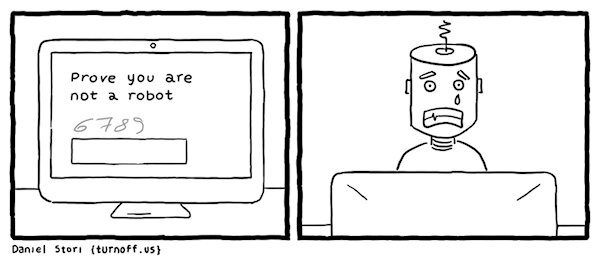Linked below, from academia.edu, is a pdf of an entire issue of the
Journal of Cognitive Semiotics devoted to 'The Intersubjectivity of Embodiment' in the evolution of species. The table of contents of the issue follows the front matter. Semiotics is critically important for philosophy of mind, for phenomenology in particular, for the understanding of animal behavior as well as our own, and for cognitive neuroscience. The second-last paper in this volume concerns the legacy of Merleau-Ponty's contributions to the discipline of Cognitive Linguistics. These disciplines are all essential in Consciousness Studies, and the papers in this journal issue are all extremely informative.
Extract from the Introduction:
"Although studies centering on both embodiment (Gibbs 2006, Johnson 1987, Violi 2007; Borghi &Pecher, 2012; Wilson, 2002) and intersubjectivity (Malle & Hodges 2005) are flourishing, it is only in recent years that cross talk and research bridging them has started being systematically pursued (Marsh et al. 2009, Tylén, et al. accepted, Zlatev et al. 2008). On the one hand, embodiment has often been presented as a sufficient explanation for all sorts of cognitive functions, grounding them in basic human sensorimotor skills. Thus, the body has implicitlybeen conceived as an unproblematic and pre-existing object, detached from its social and cultural contexts (cf Violi this volume). On the other hand, intersubjectivity has been conceived as a questionof independent individuals learning how to read each other’s mind in order to interact (cf De Bruinand De Haan
this volume). That said, embodied and intersubjective foci of research are coming together, deeply reshaping the human conception of human cognition.
Indeed, new signals are emerging in the last years, and two different movements can be recorded. Cognitive and neurocognitive scientists have started to devote more attention to the intersubjective aspects of cognition (e.g., Galantucci & Sebanz 2009, Semin & Smith 2008). The much debated discovery of the mirror neuron system (for a review, see Rizzolatti & Craighero 2004) has given a great impulse to this kind of research, as has the development of psychological theories – such as the common coding one, showing that humans rely on their own motor system while observing and predicting actions performed by others (e.g., Sebanz et al. 2006). Even if the enthusiasm for the social aspects is signalled by the birth of a novel discipline “social neuroscience”, it is still a matter of controversy among cognitive (neuro)scientists to what extent intersubjectivity is intended as foundational or not. At the same time, the influence of the bodily processes and the role of embodiment are starting to be recognized within disciplines that are traditionally more inclined to focus on the social dimension.
In the past twenty years, anthropology (Csordas 1994, 2008), linguistics (Geeraerts & Cuyckens 2007), and semiotics (Landowski 2005) rediscovered the role of the body in shaping social interactions. However, this interest has sometimes led to an over-estimation of embodiment (cf Fontanille 2004, Violi this volume), and the body has become the isolated fundament of meaning for individuals who, only in a second moment, get to interact. The aim of this special issue is to bring together researchers embracing different approaches –neuroscientists, psychologists, semioticians, linguists, philosophers, and anthropologists – to outline principles that could provide an intersubjective foundation for embodiment. The perspective that emerges is that one’s body and basic sensorimotor skills, which constitute a crucial structure for most of one’s cognitive processes, are, in important ways, intersubjectively distributed. Emotional and interactional rhythms in early infancy are crucial in shaping cognitive development (cf. Reddy 2008, Violi this volume, Trevarthen this volume). Slightly later in development, narrative frames and other sociocultural practices also play a crucial role in defining a shared structure for joint attention, pointing, and re-enactment of both successful and unsuccessful acts (Sinha & de Lopez 2000). These mechanisms are not limited to crucial periods in cognitive development but keep unfolding during the whole existence of the organisms. Dance is a wonderful example of this: the continuous interaction between the bodies of the participants, partially constrained by the sociocultural constraints of the specific dance enacted, gives rise to self-organized collective patterns of movements not reducible to the individual (cf. Kimmel this volume).
Not only are these embodied bases of cognition emerging, at least partially, from intersubjective interactions; but also, intersubjectivity is a much more basic and embodied activity than previously thought. Intersubjectivity is shared bodily engagement that partially defines the subjects that take part in it. Cultural practices and semiotic systems – such as language – build upon and extend these mechanisms. In this way, one can finally see the possibility for a more polyphonic dialogue, in which more socially oriented approaches (anthropology, semiotics, linguistic, sociology, etc.) contribute to the grounding of cognitive phenomena. Such dialogue is expressed in the eight contributions to this thematic issue of
Cognitive Semiotics. All of the papers in this issue take a social perspective on embodiment: that is, they all dispense with the long-held assumption in cognitive science that perception, action, and cognition can be understood fully by investigating single individuals. The papers are also connected because they all investigate intersubjectivity as composed of at least two levels:
1. Intersubjectivity as the articulation of continuous interactions in praesentia between two or more subjects.
2. Intersubjectivity as sedimented socio-cultural normativity: i.e., of habits, beliefs, attitudes, and historically and culturally sedimented morphologies.
It is exactly within the network of connections between these two levels of intersubjectivity that embodiment takes on its semiotic status. Through this shared arena for cognition, the possibility for communication and for signs is established. Through embodied interactions – in early infancy, but not only then – the relevant body structures acquire their salience. In the remainder of this introduction, we provide a brief synopsis of the papers in this issue. . . ."
https://www.academia.edu/31160372/The_Intersubjectivity_of_Embodiment?email_work_card=view-paper

